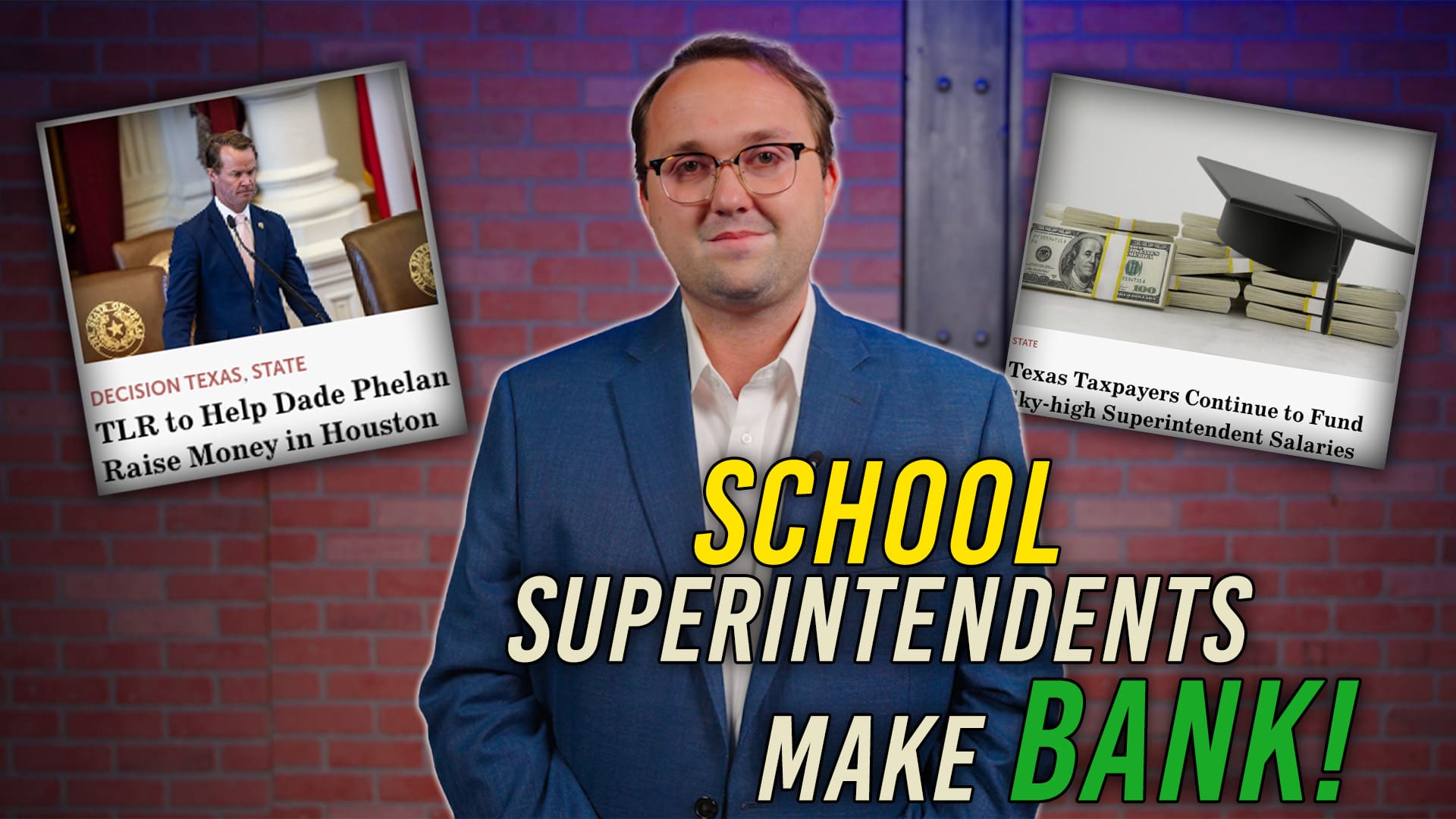For years, the Leander Independent School District (LISD) behaved according to the reckless attitude of our debt-ridden society: spend money like there’s no tomorrow. But tomorrow has arrived, and now the LISD must reap what they’ve sown for their irresponsible decisions.
The latest LISD budget meeting notice reported total district bond indebtedness to be $1,284,516,847, and a November 2010 Fitch Ratings assessment found debt levels approximating 12% of market value and nearly $15,000 per capita. Faced with such an extreme fiscal mess, the LISD Board members have finally begun brainstorming crisis alleviation attempts. But their wildly inconsiderate spending habits have and will continue to take a toll on taxpayer pocketbooks nonetheless.
Inevitably, the Board’s proposed solution for the debt crisis is a tax increase. This is hardly new to LISD taxpayers, since the most recent tax change is less than a year old. In September 2010, the LISD board raised the tax rate to $1.4548 per $100 valuation—the second highest rate in the Austin metropolitan area. Now the Board proposes a higher rate at 1.49981%, which combines the 1.04% maintenance tax with the 0.45976% school debt service rate.
(Payment on that debt service, by the way, occupied about 18% of the budget at $56,828,366 over the 2010-11 year.)
Like homeowners buying houses on cheap credit, LISD had long helped itself to a bevy of appetizers at taxpayers’ expense. And with adjustable rate mortgages on the bonds, the Board had very little to worry about—when the rates were low. But since 2008, interest rates have skyrocketed, and the LISD must now fight to pay off both its astronomical debt and its swelling debt service obligations.
The district has had a number of recent fiscal shenanigans. In 2006, the LISD passed a $286 million bond package. The next year as the previous fork load was still under digestion, the board approved $559 million more in bonds. (Included in the latter bond package was a total cost of about $34.1 million for brand new sports stadiums: $12.1 million for a replacement stadium and $22.5 million for a regional complex.) The host of expenditures cause the LISD to spend about $17,804 per student annually, and with a district of approximately 32,000 students, that’s about $570 million dollars a year—bad news for a district that’s over a billion in the red. To add stigma to self-injury, LISD also accepted $8,237,018 from the infamous 2009 federal economic stimulus packages, which of course came straight from the taxpayers’ wallets.
Many LISD taxpayers must also take the blame for the district’s fiscal crisis. The multimillion-dollar bonds in 2006 and 2007 may have been crafted by the Board members, but they were also approved by LISD voters when submitted as propositions on the ballots. Furthermore, the voter turnout of around 3,000 in 2006 was extremely low for such a large district, suggesting either an ill-publicized election or a largely apathetic populace. LISD voters would do well in the future to populate elections more heavily, better comprehend the available propositions and the significance of their impacts, maintain factual rather than fanciful approaches at the polls, and scrutinize the LISD Board candidates and officials more closely before the pencil meets the ballot.
Ultimately, the responsibility falls on the Board members themselves. When bonds of colossal price tags are shoved through at the whims of those in power, somebody inevitably must pay for them. The damage in the LISD jurisdiction has been done. Though the Board is making small efforts to reduce the provisions in the 2011-12 budget, the increasing costs from their previous reckless decisions will continue to haunt (and frustrate) property owners for years to come. Fiscal imprudence has its consequences.



